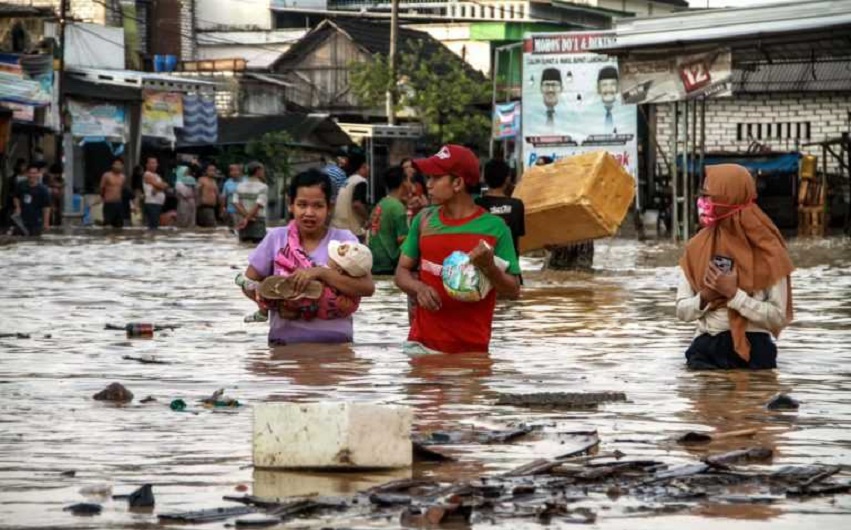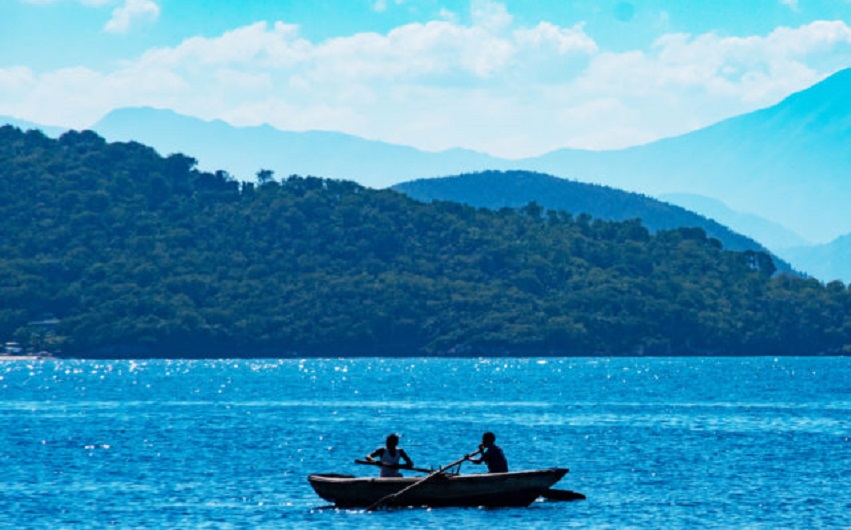The research in this cluster focuses on the impact of climate change in Southeast Asia and the Caribbean, as viewed from different disciplinary and interdisciplinary perspectives. Current projects that address this theme are ‘Bringing politics back in: Flooding and climate adaptation in Indonesia’, ‘Climate change adaptation of coffee production in Puerto Rico’, ‘Climate change and governance in Indonesia and the Caribbean: A pilot program on marine protected areas (MPA’s) and coastal nature reserves’, ‘Island(er)s at the Helm: Co-creating sustainable and inclusive solutions for social adaptation to climate challenges in the (Dutch) Caribbean’ and ‘Typhoon disaster politics in Asian history’. One of the aims of this cluster is to look at tropical archipelagoes comparatively through specific these such as climate related disasters, biodiversity, land-sea connections, and heritage. Another is to bring our own social science and humanities approaches into conversation with perspectives from the natural sciences.

Bringing politics back in: Flooding and climate adaptation in Indonesia
Indonesia is experiencing severe problems with climate-related disasters in line with the current global situation. Hydro-meteorological disaster is the most common type of disaster in Indonesia in the last two decades, and flooding is the main feature. Therefore, flooding control is a crucial climate change adaptation agenda for Indonesia. Government has conducted various flood management policies with emphasis on high-cost technical intervention. They implemented interventions through physical infrastructure that are commonly used as a technical strategy of flood control. However, the result is varied in terms of success across the regions. Despite the similar technical intervention, the outcome could be different. Some regions show impressive progress, but many remain stagnated. It leads to a question, what explains the varied level of success of Indonesian cities in dealing with flooding?
Climate change adaptation of coffee production in Puerto Rico
The threat of hurricanes, rising temperatures, and shifting rainfall patterns make the Caribbean particularly susceptible to the shocks of climate change. This research focuses on how climate change impacts agriculture, particularly the farmers who must adapt to it and related disasters. Understanding adaptation involves the transformation of (inter)relationships between farmers, their crops, inputs involved in the production processes, and the governance structures with which they interact, as well as the shifting power relations that ensue. To explore these transformations, the study centers on coffee producers in Puerto Rico, who in 2017 experienced two major hurricanes that destroyed the majority of their crops. In the face of disasters, why do they continue to produce coffee? How do they adapt?

Climate change and governance in Indonesia and the Caribbean: A pilot program on marine protected areas (MPA’s) and coastal nature reserves
Why do governance institutions and practices in protected areas generally fail to keep pace with ecological transitions due to climate change? Researchers from four institutes – KITLV, the Netherlands Institute of Ecology (NIOO), Wageningen University & Research and the Netherlands Institute of Advanced Study (NIAS) – will collaborate to find out.
Island(er)s at the Helm: Co-creating sustainable and inclusive solutions for social adaptation to climate challenges in the (Dutch) Caribbean
Driven by the increasing public awareness of the impact of hurricanes and the devastation of coastal areas, Island(er)s at the Helm will contribute to equipping (Dutch) Caribbean societies with proficient tools for confronting these challenging climatic phenomena. Such adverse events have significant ecological, social, and cultural implications, affecting the basic living conditions (water, food, shelter-nexus/WFS-nexus) and heritage of the island inhabitants. This research builds on the principle that local-specific practices and ontologies of Caribbean societies are crucial for promoting sustainable WFS-nexus solutions.

Typhoon disaster politics in Asian history
As climate-related disasters grow more threatening into the 21st century, the IPCC has urged scholars to study how nation-states can best protect their citizens against them. Disaster management belongs to the larger field of climate change governance. This project reconstructs the history of national thought and action on one type of disaster – the typhoon – in one region of the world – Asia – for the entire 20th century. More than 90% of the 1.2 million who have died worldwide from typhoons in that century died in Asia. Yet Asian nation-states have evolved in different ways over that time. While none became models of ecological virtue, some are now better at protecting people than others. What can a history of Asian adaptive practices tell us about alternative climate change governance approaches into the Anthropocene?
OUR PROJECTS
KITLV/Royal Netherlands Institute of Southeast Asian and Caribbean Studies initiates and coordinates innovative research projects on Southeast Asia and the Caribbean. It engages in research that is theoretically informed, compara- tive, and empirically strong. Research on both regions focuses on contemporary developments as well as on historical themes. This page lists the research projects ongoing at KITLV and in collaboration with other departments and institutions.
Click here to review the research projects that have been completed since 2014, the year KITLV was established as a new research institute.





